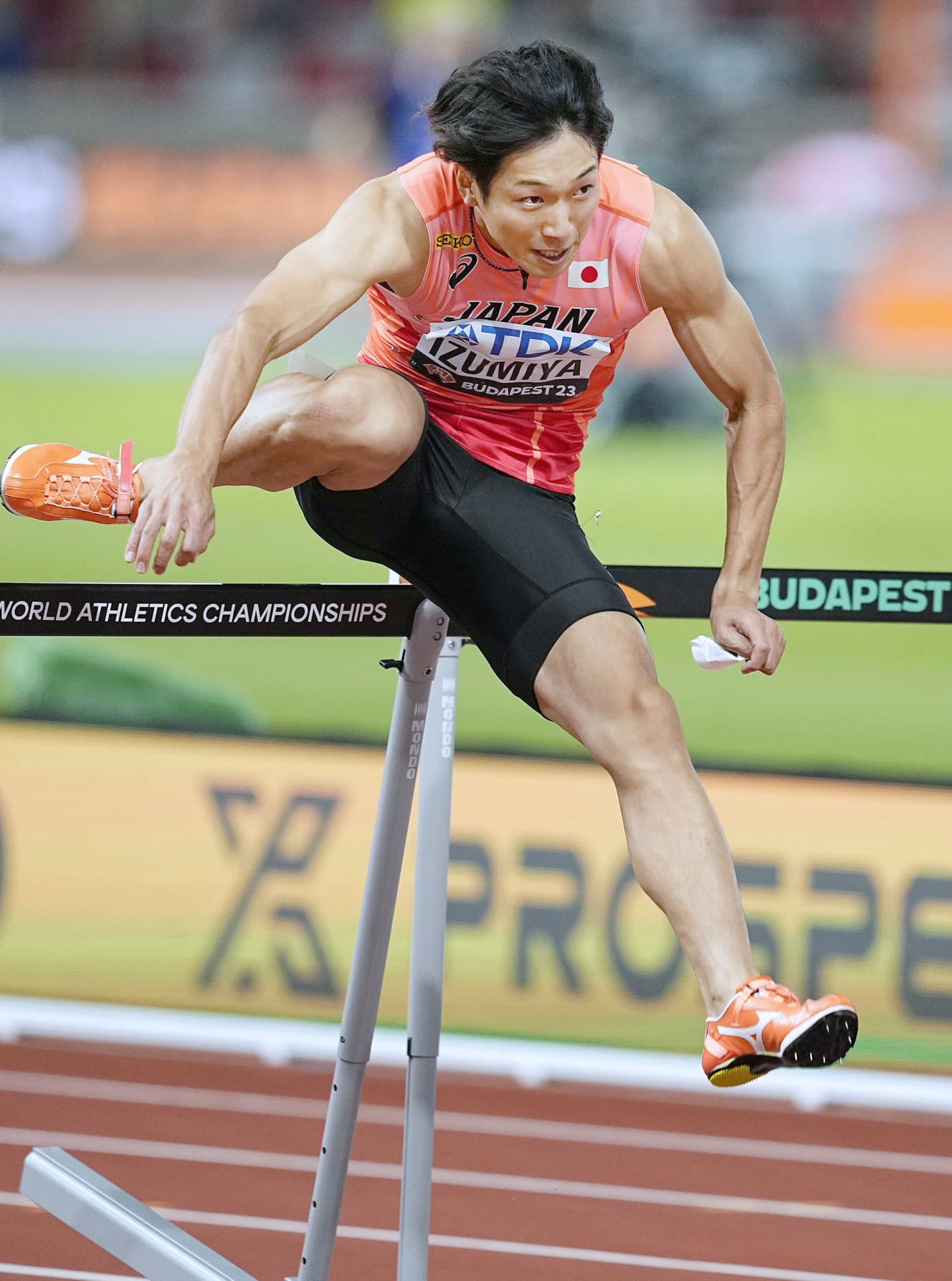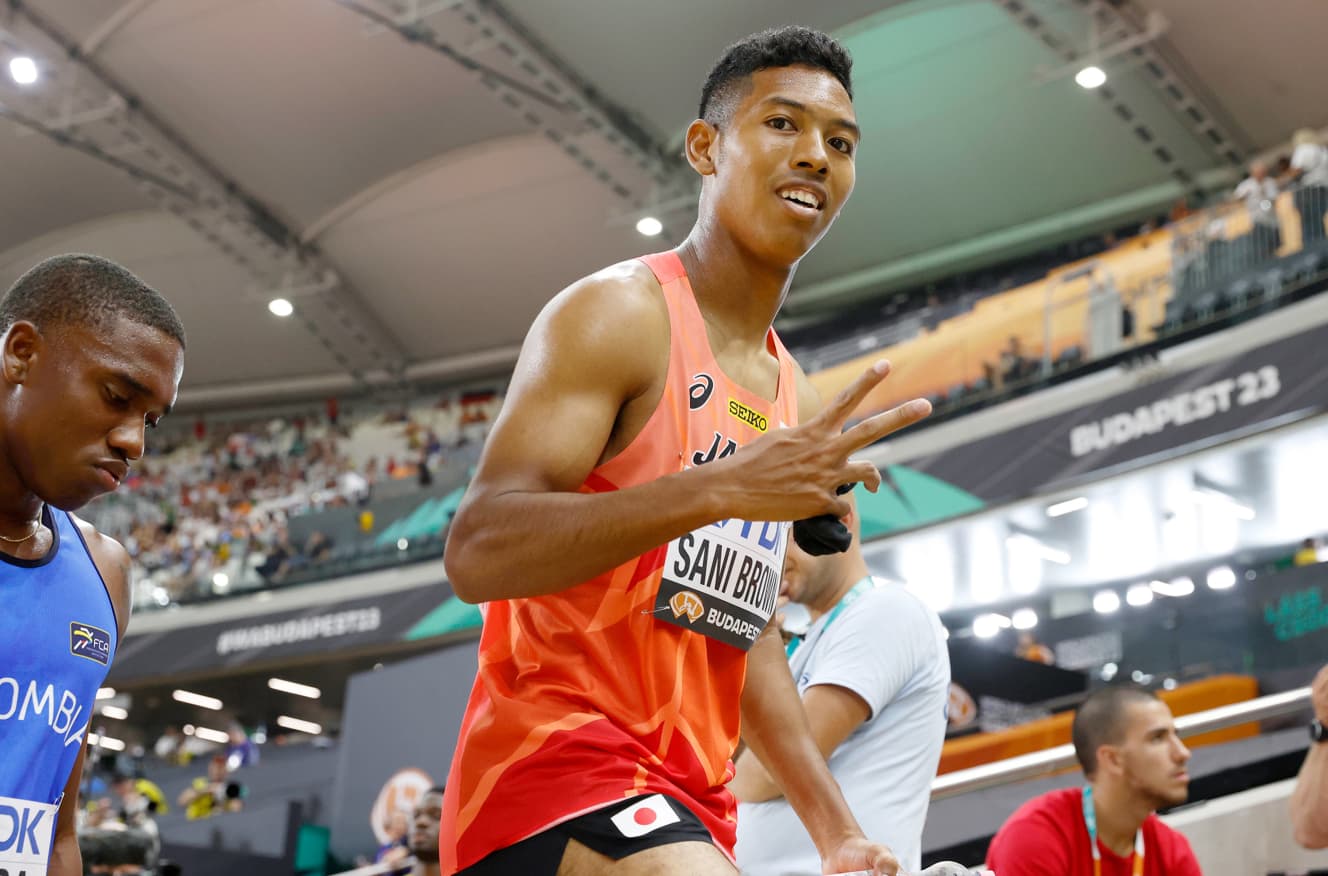Complete Guide to the Paris Olympics Featuring Strong Track and Field Candidates Led by Javelin Ace Haruka Kitaguchi
The “Paris Olympics” opened on July 27. Following the Tokyo Olympics, in which a record 58 medals were won, this year’s games are again packed with events where medals are expected to be won. We interview legends to find out the highlights of the most notable events. Let’s get drunk on the medal rush of the Japanese athletes!

Haruka Kitaguchi (26)
Women’s Javelin Throw Preliminaries: August 7, 17:25~ (To be determined)
Finals: August 11, 2:40~ (NHK General)
“Kitaguchi is ranked number one in the world (as of July 16), so she is the leading candidate for the gold medal. She will surely adjust during the competition and deliver her best in the latter half,” (Japan Association of Athletics Federations official).
Once, after only a year of competing, she won the Inter-High School Championships. Six years ago, after struggling to improve following her high school graduation, Kitaguchi decided to study abroad alone in the Czech Republic. In the recent Tokyo Olympics, she became the first Japanese woman in 57 years to advance to the finals.
“Before studying abroad, she was troubled, but in the Czech Republic, she grew significantly and found her style. She has a background in swimming and badminton, so her shoulders are very flexible. It is said that having experience in multiple sports is beneficial for specializing in one, and she is a prime example of this,” said Dai Tamesue, a former Olympic athlete and representative of Deportare Partners.
Carrying the feelings of her two hometowns, Japan and the Czech Republic, Kitaguchi’s javelin will soar into the sky of Paris.
Kimi Tanaka (24)
Women’s 1500m: Preliminaries: August 6, 17:05~ (NHK General → E-Tele)
Finals: August 11, 3:25~ (To be determined)
Women’s 5000m: Preliminaries: August 3, 1:10~ (TBS Network)
Finals: August 6, 4:10~ (TBS Network)
Tanaka’s secret to victory lies in her long sprints in the latter half of the race. While her rivals are running out of stamina and giving their final effort, Tanaka steadily pulls ahead with overwhelming speed and strength.
“Middle-distance running can be likened to horse racing. The excitement comes from the strength to push forward while bumping shoulders and the tactics involved in positioning and timing sprints. It will be exciting to see how the strongest athlete who has broken all Japanese records takes on the world stage,” said Tamesue.

Yumi Tanaka (25)
Women’s 100m Hurdles: Preliminaries: August 7, 17:15~ (NHK General → E-Tele)
Semifinals: August 9, 19:05~ (NHK General)
Japan’s number one female hurdler faced a setback at the last moment. In the final selection race, she finished second, 0.03 seconds behind Mako Fukube (28), narrowly securing a spot on the team.
“American and African competitors are strong, so Japanese women are challengers regardless of who competes. Japanese hurdles have seen the men improving their strength, and I believe the women will grow alongside them,” said Tamesue.
Tanaka’s determination, fueled by her frustration, is expected to energize the competition venue.

Yuuki Hashioka (25)
Men’s Long Jump: Preliminaries: August 4, 18:00~ (To be determined)
Finals: August 7, 3:15~ (Nippon Television Network)
The six-time Japanese champion is aiming to avenge his sixth-place finish at the Tokyo Olympics.
“Long jump is a mental game. Hashioka’s strengths lie in his overwhelming sprinting power, his ability to take off decisively from the board, and his unshakable mental composure. However, managing fatigue and adjusting his performance across six jumps from preliminaries to finals is a challenge,” said sports writer Toshio Sato.
His personal best would have earned him a bronze medal at the Tokyo Olympics, placing him well within medal contention.

Shunsuke Izumiya (24)
Men’s 110m Hurdles: Preliminaries: August 4, 18:50~ (NHK General → E-Tele)
Semifinals: August 8, 2:05~ (NHK General)
Japan had never reached the finals in the 110m hurdles at a world championship until Izumiya broke that barrier at last year’s World Athletics Championships.
“Men’s hurdles are 23 cm higher than the women’s, requiring exceptional jumping ability. Izumiya’s impressive springiness is evident as he can jump over 8 meters in the long jump. He is a world-class athlete with speed, jumping ability, and excellent rhythm, which are effective in events beyond just hurdles,” said Tamesue.
He is considered the closest among Japanese athletes to winning a medal.

Sani Brown Abdelhakim (25)
Men’s 100m: Semifinals: August 5, 3:00~ (To be determined)
Finals: August 5, 4:50~ (TBS Network)
Men’s 4x100m Relay: Preliminaries: August 8, 18:35~ (NHK General → E-Tele)
Finals: August 10, 2:45~ (NHK General)
“Top athletes in the world have an internal speedometer, conserving energy while advancing to the finals. Sani Brown already has the ability to maintain top speed throughout a race, so the key will be peaking at the finals,” said Sato.
Known for his strong finish, Sani Brown has been focusing on improving his start.
“There’s a 0.1 to 0.2-second difference between successful and unsuccessful starts for him, which he is aware of. His top speed at the 60m mark is among the best, so if his start improves, he could contend at the top,” said Tamesue.
With Usain Bolt’s retirement, Sani Brown has the potential to emerge as a prominent figure in sprinting, an area currently lacking a dominant champion.

From the August 9, 2024 issue of FRIDAY
PHOTO: Afro Kyodo News, Asahi Shimbun, Getty Images, Sankei Shimbun, Jiji Press, Fortximoto, Sachiko Yasutaka, Yuji Yanagawa, Shigeru Watanabe